Diabetes Action Canada Collaborators Report 2024
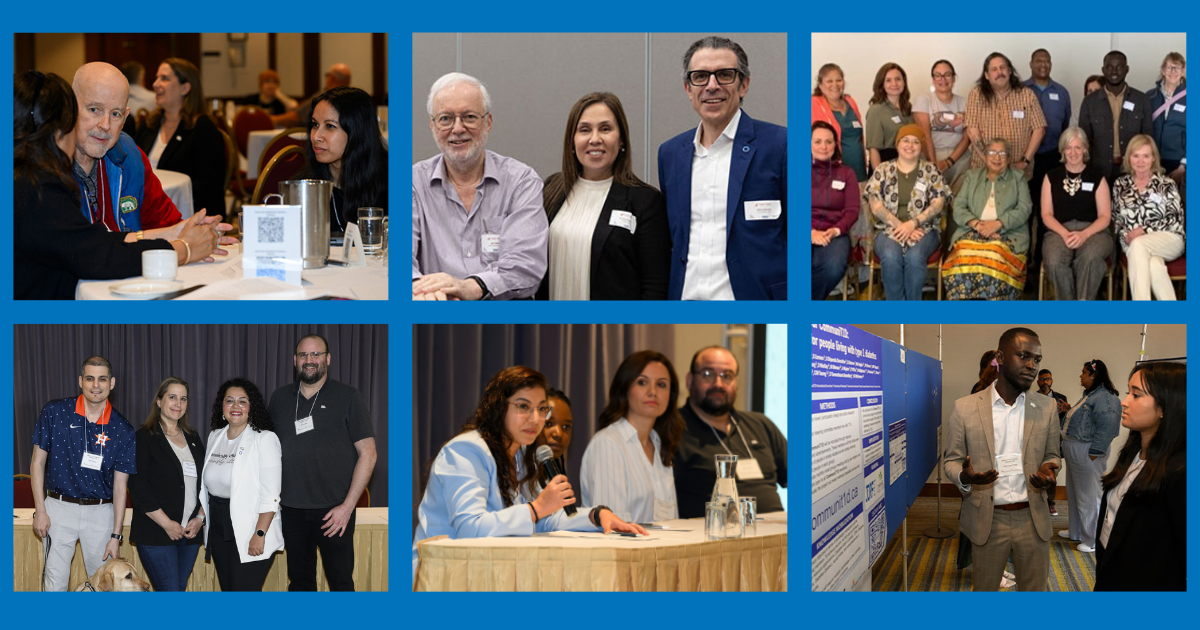
From the Executive
Diabetes Action Canada (DAC) continues to make patient-oriented research an essential part of the diabetes scientific community in Canada. This year was particularly important in reaching that goal, as we launched a number of new initiatives dedicated to celebrating and supporting patient partnership.
Our Research to Action Fellowship was an enormous success, with our initial eight fellows developing projects with the potential to have real impact on the health and well-being of people living with diabetes.
Our first Catalyst for Change Awards celebrated the important contributions of people with lived and loved experience of diabetes, and highlighted three of our exceptional Patient Partners – Matt Larsen, Kate Farnsworth and Ryan Hooey. This award, for which our community nominated their peers, was met with great positivity and goodwill.
In May, our Canada-wide workshop brought together DAC Patient Partners and research community for two days of meaningful knowledge sharing, relationship building and collaboration. The subsequent Workshop Report highlighted the many positive outcomes from this event.
In October, we launched Diabetes Research Connect in partnership with the Canadian Primary Care Sentinel Surveillance Network (CPCSSN). This resource will allow researchers to study real-life data providing evidence for new models of care and prevention of complications that truly meet the needs of those living with or at risk of diabetes.
And in November we hosted a full house for our first DAC breakfast at the Diabetes Canada/CSEM Professional Conference in Halifax. With so many of our researchers, collaborators and Patient Partners presenting at the conference, it was extra special to bring everyone together to share highlights from our work and launch new projects and resources.
Throughout the year, we have also provided DAC researchers support in developing their patient-oriented diabetes research grant proposals. DAC led focus groups, led co-design sessions with Patient Partners, matched Patient Partners to research and advocacy opportunities, provided patient-oriented research training and so much more. It has been a very productive whirlwind of activity.
All of this work would not have been possible without our small but mighty team. We are grateful to each of our staff members, our researchers and, most importantly, our Patient Partners, for their dedication to the work of Diabetes Action Canada. We have no doubt 2025 will be an even more successful year.

Tracy McQuire

André Carpentier

Gary F. Lewis
Report Highlights
-
The Research to Action Fellowship is a dynamic, nine‐month program that empowers Patient Partners to drive meaningful change in diabetes care. In 2024, the first cohort launched with bringing their passion, creativity and lived experience to the table.
-
Building on the highly successful DAC National Diabetes Repository of primary care data, in October, we launched Diabetes Research Connect, a national, virtual data repository.
-
Amputation prevention and improved access to eye screening for diabetes retinopathy were the focus of our 2024 research projects.
Projects allowed patient partners to inform research and empower researchers to change the reality of diabetes care.
-
Community is at the core of DAC’s mission. Explore the presentations, workshops and conferences we attended across the globe.
-
Our 2024 Canada-wide workshop, held from May 30 – 31st at the Chelsea Hotel in downtown Toronto, marked our most successful event to date. This gathering brought together researchers, healthcare professionals, Patient Partners, trainees, and collaborators in patient-oriented diabetes research under the theme “Patient Partners as Agents of Change.”
-
The Catalyst for Change Award celebrates Patient Partners who have made outstanding contributions to advancing patient-oriented diabetes research and care, embodying transformative achievements in our community.
In May, Diabetes Action Canada awarded the first ever Catalyst for Change Award to three Patient Partners.
-
Designed by the DAC Indigenous Patient Circle: “Cultivating Equity: Advancing Anti- Racism in Healthcare.” This day-long session, attended by trainees, Patient Partners and staff, featured a diverse program incorporating traditional Indigenous knowledge and practices with presentations addressing unconscious bias, racism in healthcare, and the Truth and Reconciliation Commission’s Calls to Action
-
Knowledge mobilization (KM) and implementation science remain a key element of all our work. It is not enough to simply conduct research or suggest interventions—there must be a plan in place to ensure that work reaches those it is meant to help. Our team is helping investigators in the diabetes space develop those plans.
-
This year, many of our researchers published papers about DAC-supported projects in scientific journals. Patient Partnership played a role in each one.
-
Patient Partnership in Study Recruitment
-
Harnessing Technology to Improve Diabetes Care
-
Contributing Factors to Glycemic Target Adherence
-
-
Celebrating the contributions of Patient Partners who have passed in recent years. Acknowledging their contributions to our work and for the time they dedicated to patient-oriented research.
-
Diabetes Action Canada gratefully acknowledges our contributors. Our partners allows us to bring together researchers, healthcare providers and patients from across the country with the goal of transforming health outcomes for people with diabetes.
Diabetes Action Canada by the Numbers
Research to Action Fellowship
The Research to Action Fellowship is a dynamic, nine‐month program that empowers Patient Partners to drive meaningful change in diabetes care. In 2024, the first cohort launched with the Fellows bringing their passion, creativity and lived experience to the table.
Working side‐by‐side with leading organizations, these first fellows worked in pairs to transform research findings into tangible, community‐driven initiatives—ensuring that diabetes care becomes more accessible, equitable, and reflective of real-world experiences.
They presented their projects at the Diabetes Canada/CSEM Professional Conference in Halifax in November 2024. The presentation, on the conference’s main stage, was cited as a highlight by many participants.

Diabetes Research Connect Launches
Building on the highly successful DAC National Diabetes Repository of primary care data, in October, we launched Diabetes Research Connect, a national, virtual data repository.
This data repository, a collaboration between Diabetes Action Canada and the Canadian Primary Care Sentinel Surveillance Network (CPCSSN), aims to enhance diabetes patient-oriented research across Canada and foster collaborative partnerships with academic institutions, healthcare providers and patient groups.
By aggregating data from CPCSSN, Diabetes Research Connect provides a unique opportunity to establish a holistic view of diabetes trends and outcomes across the country. It enables researchers to analyze a wealth of information, from patient demographics to treatment efficacy, helping to identify prevention and care patterns and develop person-centered interventions for better diabetes management.
“In Diabetes Research Connect, accredited researchers can access comprehensive de-identified primary care data from up to 1.8 million patients from coast to coast – the most access available through any repository in Canada. With a goal to support transformative diabetes research and improve understanding of the healthcare landscape in Canada, this platform is an exciting new resource for data researchers.”

Research Impact

Preventing Lower Limb Amputations: A Collaborative Approach to Foot and Lower Limb Care
For people living with diabetes, foot complications can lead to serious consequences—including lower limb amputation. DAC is working alongside leading researchers and healthcare teams to change that reality by improving access to timely foot care for those most at risk.
With funding from Ontario Health, Dr. de Mestral and Patient Partner Tom Weisz are leading an innovative Lower Limb Preservation project, integrating hospital and community-based care in partnership with the Downtown East Toronto Ontario Health Team (OHT) and Anishnawbe Health’s chiropody program. This initiative ensures that inner-city populations, including Indigenous clients, receive the foot care they need to prevent severe complications.
Taking this a step further, Dr. de Mestral, in collaboration with the GEMINI medicine research group and the Vector Institute for Artificial Intelligence, has developed an AI algorithm to identify patients with diabetes at highest risk of lower limb amputation. Application of this risk calculator to information on persons with diabetes admitted to Unity Health Toronto’s St. Michael’s Hospital, individuals who need specialized follow-up after discharged are connected with community-based foot care.

Improved Access to Eye Screening for Diabetic Retinopathy
By engaging persons with vision loss due to lack of timely diabetic retinopathy screening, DAC investigators Drs. Michael Brent and Valeria Rac have co-designed, implemented and evaluated a new data-informed approach to identifying those in the community who would benefit from eye screening.
The project was conducted in collaboration with the Ontario Alliance for Healthier Communities, ICES and two Toronto Community Health Centres (CHCs), home of a regional diabetic eye screening program where 17% of clients are uninsured, 76% are racialized and 56% have an annual income less than $30,000.
Using CHC electronic medical record (EMR) data linked to provincial billing data for retina image scans, screening according to clinical practice guidelines was analyzed. Using all the Ontario CHC EMR data, 72,000 clients with diabetes were found to be unscreened according to evidence-based clinical practice guidelines. The clients at the two CHCs were identified enabling health professionals to contact them. Once screened, 29% had previously undiagnosed diabetic retinopathy (9% with sight threatening disease).
The research was published in the Canadian Journal of Ophthalmology highlighting it’s groundbreaking impact.
Community Impact
Diabetes Action Canada In the Community

Presentations
From sharing personal stories at a WHO event on World Diabetes Day, to training the next generation of diabetes researchers at MyRoad’s annual workshop, Diabetes Action Canada staff and members participated in dozens of presentations on the importance of patient-oriented research in 2024.
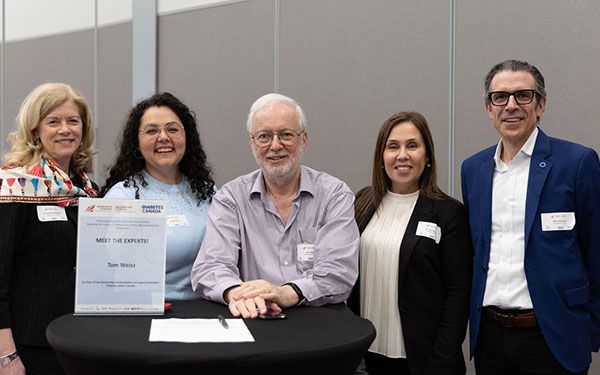
Network
In 2024, we added more collaborators to our Network! Our new Community Action Partners tier of membership was introduced and we are proud to have Access Alliance, South Riverdale Community Health Centre, Diabetes Canada and Research Canada as our first members.
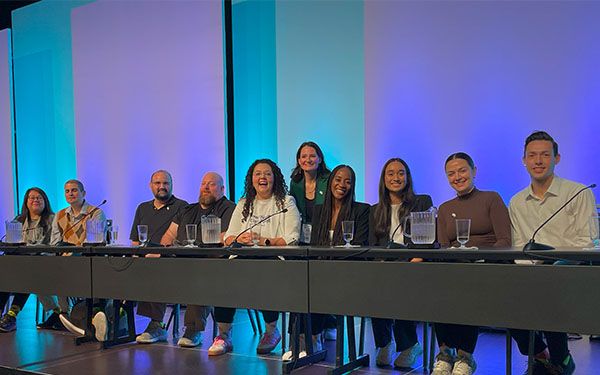
Diabetes Canada Conference
Diabetes Action Canada Workshop
Participants highlighted the following as reasons they found this event impactful:
- Patient-centred co-design
- Innovative knowledge mobilization throughout
- A focus on Indigenous health
- Advances in digital health explored
- Recognition and networking opportunities
“For me, the most meaningful part of the co-design process was being treated as an equal contributor. It wasn’t just about being present—it was about being truly heard and valued in shaping the outcomes.”
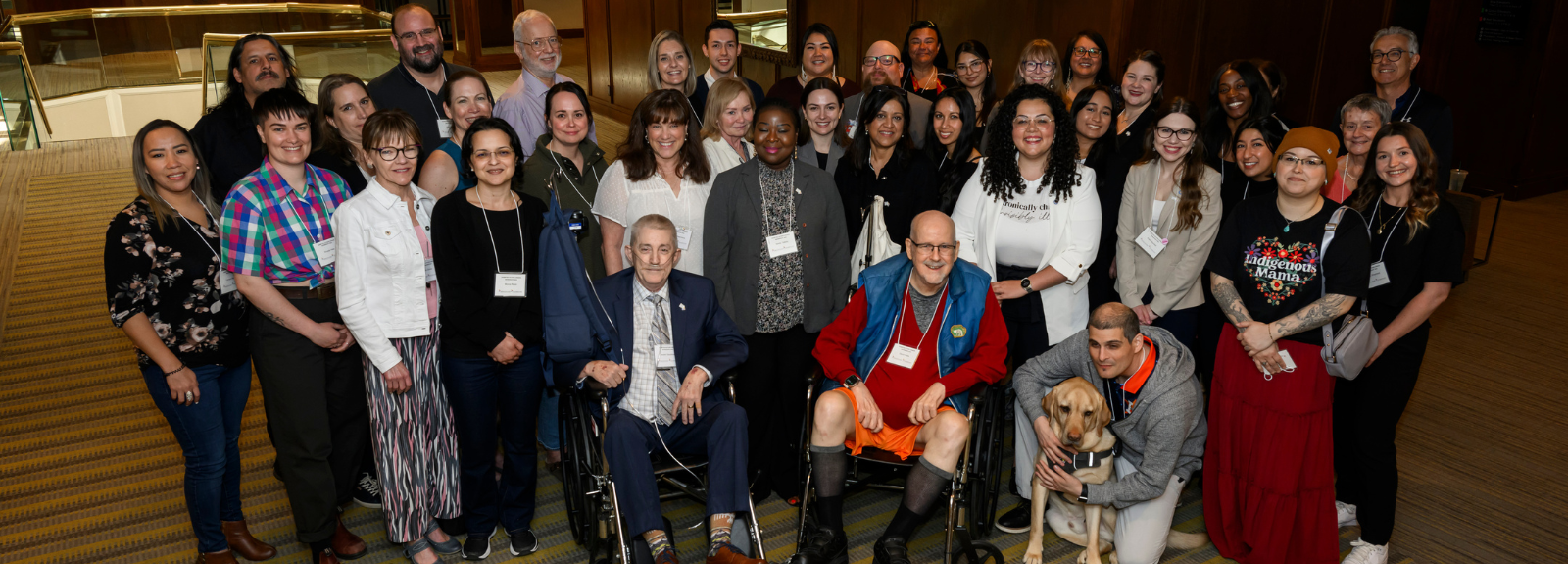
Catalyst for Change Award
The Catalyst for Change Award celebrates Patient Partners who have made outstanding contributions to advancing patient-oriented diabetes research and care, embodying transformative achievements in our community.
In May, Diabetes Action Canada awarded the first ever Catalyst for Change Award to three Patient Partners.
Patient Partners helped determine the nomination criteria, ensuring it was transparent and clear, and were part of the selection committee. They participated in every step of the process, including suggesting and supporting a panel discussion by the winners at the DAC Workshop to give Patient Partners increased voice at the event.

Kate Farnsworth

Ryan Hooey

Matt Larsen
Anti-Racism Training
In May, our workshop began with a pre-event designed by the DAC Indigenous Patient Circle: “Cultivating Equity: Advancing Anti- Racism in Healthcare.” This day-long session, attended by trainees, Patient Partners and staff, featured a diverse program incorporating traditional Indigenous knowledge and practices with presentations addressing unconscious bias, racism in healthcare, and the Truth and Reconciliation Commission’s Calls to Action.
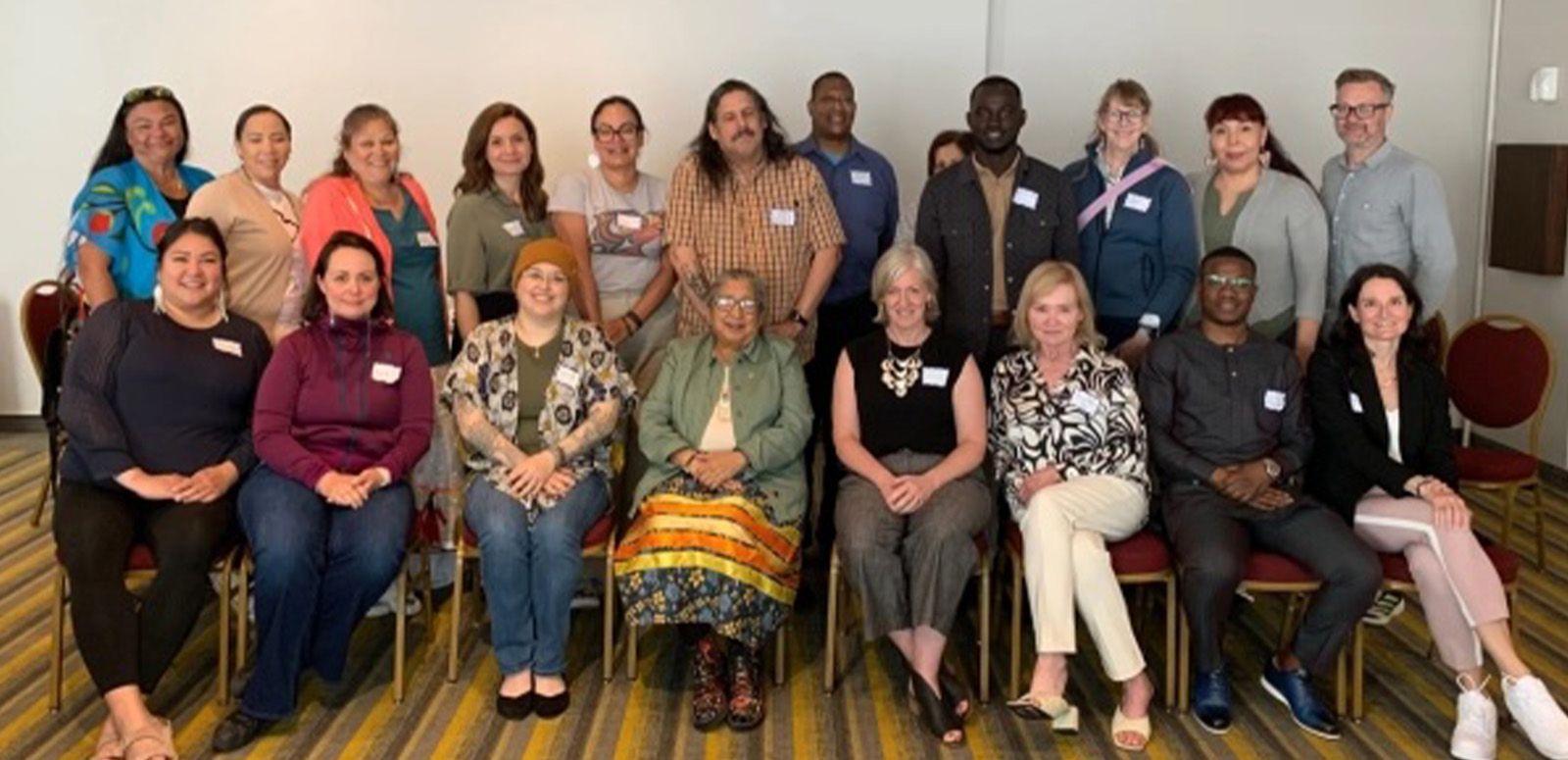
Knowledge Mobilization Tools and Successes
2024 KM Highlights
Knowledge mobilization (KM) and implementation science remain a key element of all our work. It is not enough to simply conduct research or suggest interventions—there must be a plan in place to ensure that work reaches those it is meant to help. Our team is helping investigators in the diabetes space develop those plans.

Eight of the ten research projects which received DAC support were funded by the CIHR Operating Grant: Knowledge Mobilization in Diabetes Prevention and Treatment grant competition.

The launch of our KMap Tool—a guide to help the user develop a KM plan for their research project.

The first funded research project to come out of our KM Consultation program: Osnat Melamed from INTREPID Lab at the Centre for Addiction and Mental Health in Toronto received CIHR funding for Helping Women with Diabetes Quit Smoking: A Gender-Informed Approach to Brain Health.

In an evaluation of DAC’s KM Consultation Service, 100% of users strongly agreed that their KM knowledge increased and that they would apply the knowledge they gained using the service.
2024 Publications Highlights
The TransFORmation of Indigenous Primary Healthcare Delivery (FORGE AHEAD): Economic Analysis (May 2024)
Citation: Stanimirović A. et al. Health Research Policy and Systems. May 13, 2024;22(1):57. DOI: 10.1186/s12961-024-01135-
Summary: Affiliated with DAC, this cost-effectiveness study evaluates FORGE AHEAD, a primary care model for First Nations communities, addressing access, hospitalization, and resource utilization in diabetes care.
Technology-Enabled Collaborative Care for Type-2 Diabetes and Mental Health (TECC‑D) (Feb 2024)
Citation: Sherifali D. et al. Int J Integr Care. Feb 16, 2024;24(1):12. DOI: 10.5334/ijic.7608; PMID: 38370569
Summary: This mixed-methods feasibility trial, co-designed with DAC, tested an 8-week virtual coaching program integrating diabetes and mental health care. Results show high feasibility and acceptability.
Beyond Hemoglobin A1c–Outcomes That Matter to Individuals With Type 1 Diabetes in Adopting Digital Health Interventions for Self-Management Support: Qualitative Study (Nov 2024)
Citation: Markowitz B. et al. JMIR Diabetes. Nov 7, 2024;9:e60190. DOI: 10.2196/60190; PMID: 39509700
Summary: Co-authored by DAC, this study explores what outcomes matter most to individuals with type 1 diabetes regarding digital health interventions. Patient-led advisory committee involvement informed virtual self-management educational support planning.
Community Resources
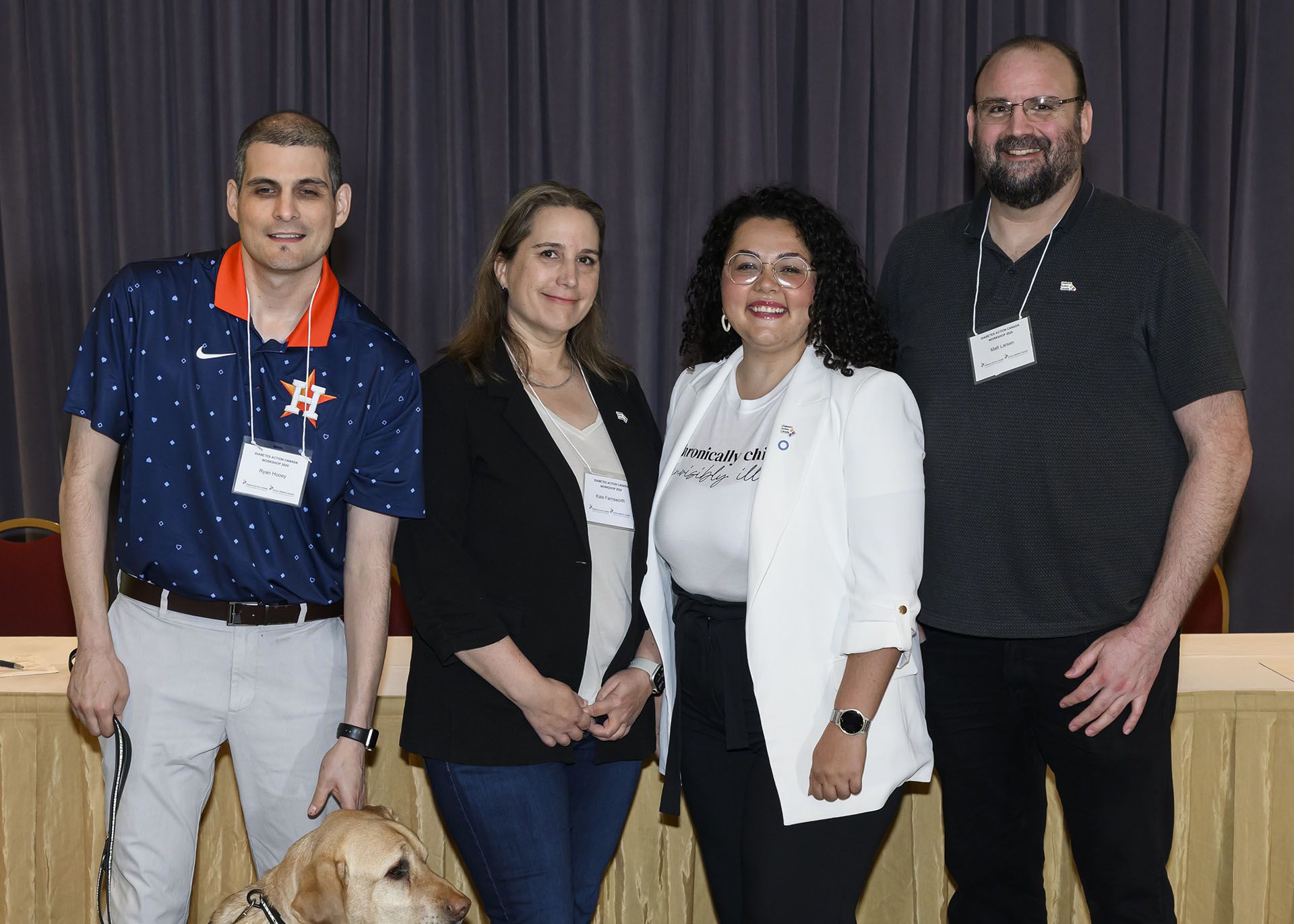
Patient Voices Blog
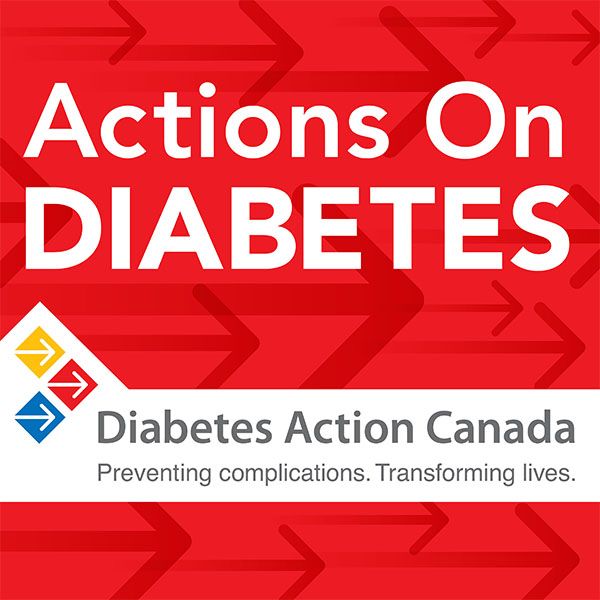
Actions on Diabetes Podcast
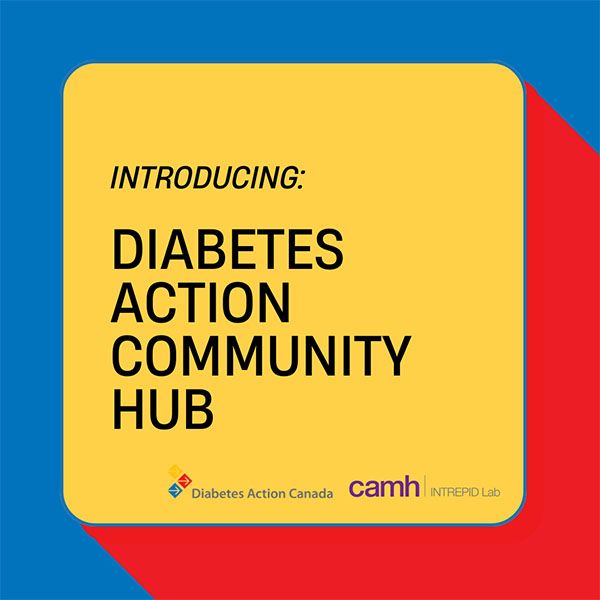
Community Hub
In Memoriam

André Gaudreau

David Wells
Partner Acknowledgements
Diabetes Action Canada gratefully acknowledges our contributors. Your support and partnership has allowed us to bring together researchers, healthcare providers and patients from across the country with the goal of transforming health outcomes for people with diabetes.
Funding Partners



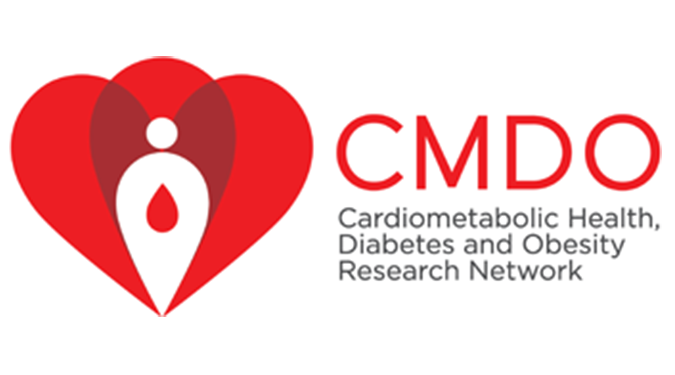
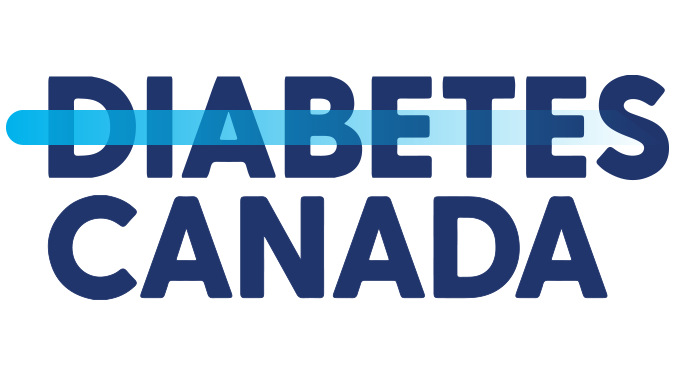




Institutional Partners

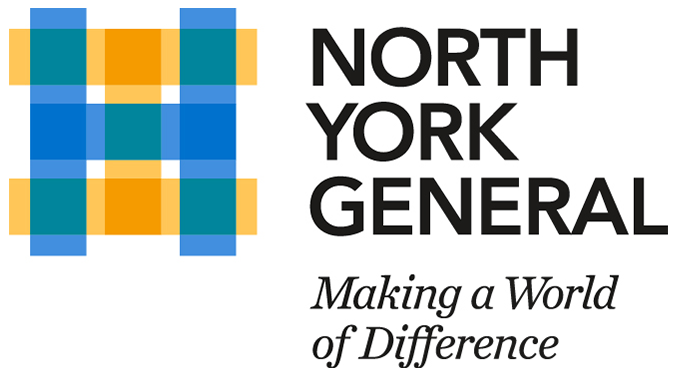






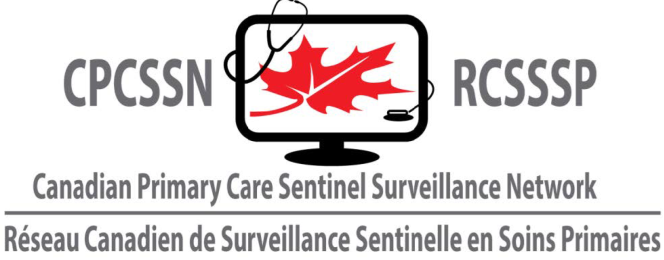
Reps on Steering Council





Collaborators on DAC 2.0 Application




Others







